Regenerative organising and holistic security
This training weaves together learning from our ‘Regenerative Activism Training’ with the ‘Psychosocial Resilience and Holistic Security Training’. It offers a range of tools, collective and personal, which can make our activism more effective and sustainable. These methods can help us avoid burnout and stay in it for the long haul, adding continuity to our movement building. As well as an integrated approach to digital, physical, and psycho-social security for individuals and organisations.
Taking a holistic approach to resilience building we will use a framework that recognises the interplay between the individual, group and socio-political levels of activist practice. Exploring how to develop integrated strategies for personal, organisational and movement resilience, the training will be centred around the Regenerative Activism Training structure with a series of modular options exploring Holistic Security.
Regenerative Activism
A ‘regenerative’ approach goes beyond sustainability to explore how we can organise in ways that actually renew or revitalize our own resources and those of our groups – this can help us stay inspired, nourished, & more creative in our tactical approach. These methods can help us avoid burnout and stay in it for the long haul, adding continuity to our movement building. They can be used to ensure the collective and organisational dimensions of our activism exemplify the values we’re struggling for.
Those of us involved in social change face enormous challenges. Daily we meet injustice, loss, and suffering in the world around us. We also meet our own responses, our fears, frustrations and anger. How can we best work with these responses creatively to achieve our goals? Where can we find the personal resources and skills that could make our action more effective and sustainable? And what collective tools can we use to enable our groups, organisations, and networks to better embody our values?
We use the term ‘regenerative’ because we don’t want things to just be sustainable. As in the world of permaculture, we want systems to regenerate through processes that restore, renew or revitalize their own sources of energy and materials. Our organising and activism can be a context within which we can thrive, where we create a shared context that enables us to flourish as we support others to do so. Our organising can embody a life-affirming vision and exemplify the values of social justice that we are inspired to realise in the world.
The course explores these issues using holistic and participatory methods – drawing on popular education, ecological and systems thinking, as well as reflective practices. It will bring together activists from across Europe, to share practice and strengthen networks.
What are the aims?
Holistic Security
Activists, human rights defenders, and political organisers can suffer attacks at the hands of both State and non-State actors seeking to hinder their work. This damages our effectiveness and the wellbeing of ourselves and those around us. Such attacks can deter and hinder efforts towards greater social justice and ecological integrity. Holistic Security explores methods of analysis, strategy and implementation to protect spaces for activism and resistance.
Building on the Holistic Security Manual the trainers will share an integrated approach to digital, physical, and psycho-social security for individuals and organisations.
Security issues affect those working on many issues: LGBTI and gender rights, environmental and human rights, anti-corruption work and other forms of social or political organising. Individuals and organisations can find themselves targeted for personal, economic and societal attacks by adversaries. The development of electronic surveillance mechanisms poses a growing threat. Security and protection can easily become important at home, at work and while carrying out organising activities.
This training will help you to take an organised approach, to build strategies to maintain well-being and to protect spaces for activism and resistance – whether working alone, in small groups, collectives or organisations. This training takes a holistic approach that integrates various aspects of security including psycho-social, digital and physical security.
The concept of a ‘holistic’ approach to security and protection for activists arose from a collaboration and exchange of best practices between trainers and practitioners working on the security and protection of human rights defenders. This included psycho-social well-being and ‘integrated security’ approaches; security management and risk analysis; and digital security. After years of exchanges, a sense emerged that an integrated approach is necessary in order to facilitate a more positive and rounded improvement in security and protection practices among activists and human rights defenders at risk. This Holistic security training is one of the fruits of that exploration.
The aims of a holistic approach to security and protection of activists and HRDs include:
A Training of Trainers Element
We will integrate within the training the opportunity for some participants to learn about the content and methodologies for running trainings on sustainable activism. This will take the form of a coaching circle during the training, in which to debrief and reflect on the content from a training perspective, as well as two additional days at the end of the training to stay on, reflect and aim to consolidate learning about design, deliver and hold spaces for sustainable activism. Participants taking part in this aspect of the training should have previous training experience. This component ends on the 18th May 2022.
Venue
This course will be hosted at La Solana, a venue close to the Ulex Project centre that we are using to host rescheduled courses that were impacted by the Covid pandemic. Venue details to follow.
In the solidarity economy:
(See details of our approach to radical economics here)
Contact us
to apply
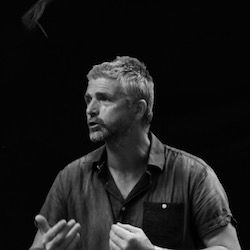
Location:
G has been involved in social movement organising and education since the late 1980’s. He is a highly regarded trainer and has designed numerous training programmes covering areas such as psychosocial resilience in activism, the ecology of social movements, and leaderful organising. As a founding member of the Ulex Project, he is known for highly innovative work blending pedagogical methodologies. This holistic approach to activist learning has inspired numerous training initiatives across Europe. He currently steers the strategic development of the Ulex Project and its social movement capacity building programme.
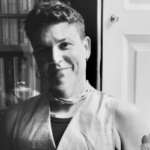
Location:
Ilaj’s background is in grassroots organising, involving them in various strands of social movement work for nearly two decades, mostly in Eastern and Southern Europe. In more recent years, they have turned their attention to broader European movement building as part of the Ulex core team, where they design programmes, coordinate training teams and facilitate on a wide range of training courses. Ilaj is an experienced trainer with a broad range of skills, particularly in holding space for collective exploration of burnout, weathering repression, navigating trauma and cultivating solidarity in social movements. They are passionate about working with body awareness as a radical means of deconstructing internalised systems of oppression. They have been exploring the intersection between transformative somatics and political organising for a number of years.
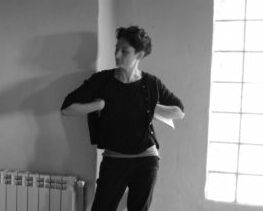
Location:
Alex has been designing and facilitating training, geared towards social and personal transformation, for over a decade. They have been part of building long term programs for sustainable activism and psycho-social resilience which have informed Ulex’s work, and coordinated multiple international projects to support propagating this work throughout Europe. Their commitment to social justice and history of activism have involved them in direct action and affinity group work focused on climate justice, anti-capitalism, queer politics and gender identity. As part of the Ulex team, they are involved in project coordination, resource development and course facilitation.
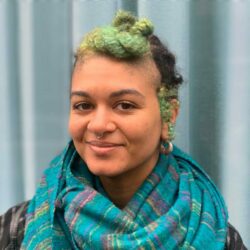
Location:
Camille Sapara Barton (they/them) is an artist and educator who explores creative interventions that sustain life. Rooted in Black Feminism, ecology and harm reduction, they use creativity as a means to grow the more beautiful world our hearts know is possible. Embodiment, healing justice and drug policy are key threads within Camille’s work. They are certified in the Resilience Toolkit – a somatic modality that supports nervous system regulation, stress management and creates the capacity to recover from trauma. From 2015 – 2020 Camille led the Collective Liberation Project, providing workshops and training on embodied approaches to anti-racism.
In 2022, Camille launched the GEN Grief Toolkit, a collection of embodied practices to support grief work within movements for environmental and social justice. They are currently the head of Ecologies of Transformation, a temporary masters programme at Sandberg Institute, which researches how art making and embodiment can create social change.
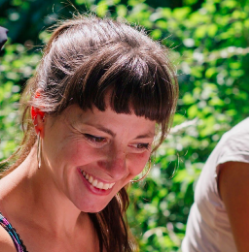
Location:
May (she/her) is an experienced nature facilitator, who’s been helping people to connect with nature for over 15 years and with Forest School Camps (FSC) alongside many other organisations. Most recently she co-founded the Natural Resilience Project, which builds personal resilience though connection to nature with migrant women in cities across the UK.
In her free time May is a passionate campaigner and activist, and for the last decade or more has worked on a range of issues, often with an environmental emphasis. With Plane Stupid she focused on aviation, and went on to help establish Grow Heathrow, a squatted community food growing project in the path of the proposed 3rd runway. After many years spent fighting dirty big business, and standing with communities being damaged by extractive industries with Reclaim the Power, her activism most recently joined the dots between the aviation industry’s ties with the UK home Office’s brutal process of deportation by charter flight. She was one of the Stansted 15 defendants in a long running court case which spanned between 2017-2021.
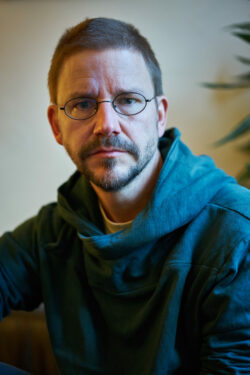
Location:
Peter Steudtner is a freelance trainer on Holistic Security and Nonviolent Conflict Transformation as well as a documentary photographer and filmmaker. His engagement in holistic security accompaniment is currently part of the Digital Defenders Partnership (https://digitaldefenders.org) as a Psychosocial Support Facilitator as well as within the Holistic Protection Collective globally for Human Rights Organisations, journalists and activists. He is one of the authors of https://holistic-security.
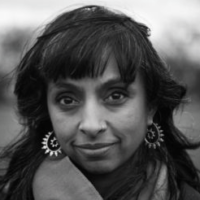
Location:
Sheila has been involved in activism and campaigning for social change for about a decade, organising and facilitating with grassroots groups and NGOs, primarily in the UK climate movement. In the lead up to COP21, in 2015, she was part of forming a European network mobilising for grassroots action on climate justice. In more recent years she has been more focussed on developing anti-oppression training, to support the need for greater intersectional thinking in all movements in order to not recreate systemic racism and social inequality. After a year working in the Ulex core team, Sheila is now leading a project to build capacity to support training for BIPoC activists, and to develop a Ulex training programme exclusively for BIPoC participants.
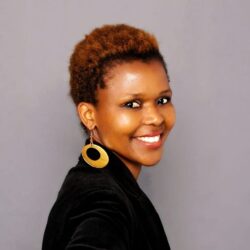
Location:
Nontokozo says: I have always been passionate about building community, inner engineering, group dynamics, motivating and empowering others. I enjoy tackling women issues, building bridges of hope and healing between Africa & Europe and beyond, I love sharing knowledge on conscious living, advocating for climate and social justice, and regenerative education. My work includes education on diversity and racism awareness. I am a firm believer of UBUNTU an Indigenous African Knowledge System – “I am because we are”. I am committed to creating safe spaces and holistic events for individuals and group processes, to support in achieving desired goals and creating a common vision, using indigenous wisdom, processwork facilitation and other methodologies.’
Location:
Transformative Education is a non-profit organisation, supporting the empowerment of individuals and communities to contribute to social justice, ecological intelligence and the flourishing of people and the ecosystems they live within. They offer bespoke training and facilitation for groups and organisations working to bring about positive change.

Location:
An Maeyens (she/her) is a facilitator and trainer with over two decades of experience in grassroots movements. She specialises in creative, inclusive agenda design and brings deep expertise on group culture, power dynamics, and transformative learning. Starting of in the anti-globalisation movement she has trained thousands in civil disobedience, supported international coalitions, and developed multilingual training programmes and toolkits. Her work spans movements, cultures, and countries, guided by a commitment to care, accessibility, and leaderful organising.

Location:
Ari’s activism began in 2002, at age 16, as a Bosnian refugee in Canada, where they founded and coordinated a group for LGBTIQ high school students and allies. They were a co-founder and leader at kolekTIRV in Croatia and Trans Network Balkan, involved in community organizing, advocacy, program management, team coordination, capacity building, education, media work, campaigns, events, fundraising, etc. In 2024, they joined the Supervisory Board of the Croatian Trade Union Collective of United Precarious Workers and Activists (SKUPA).
Beyond the Balkan region, Ari served as a Board member at Transgender Europe (TGEU), where they held roles as Secretary, Treasurer, and later Co-chair. They have also been a trainer with the Center for Artistic Activism and served on the Advisory Committee and since 2022 as a Community Care Facilitator at FRIDA — The Young Feminist Fund. Since 2024 they are the Operations Manager at Global Philanthropy Project.

Location:
Sergio (all pronouns) was born in Romania and migrated to Germany in the early 2010s. In the past, he was a social worker with homeless people and a social consultant for Eastern European migrants for various organisations. Trained as a filmmaker, he spent two years making a documentary about the ‘civic reawakening’ in Romania and the waves of protest it brought with it. In connection to this, Sergio is currently co-steering the development of an online open-source participative knowledge production platform on activism in Romania. Over the past nine years, Sergiu has offered his skills to various journalists, grassroots collectives and campaigns, mostly working within the labour rights, climate justice, international solidarity and anti-authoritarian movements in Germany and Romania. Nonetheless, his biggest focus since 2020 has been his work as an organiser with the anarcho-syndicalist Free Workers Union, where he focuses mostly on organising Romanian migrant workers on construction sites, in factories and in the agricultural field.

Location:
Linzy Na Nakorn is a movement director, politicised somatics practitioner, community organiser and facilitator. For the past decade she has been facilitating movement, body work and creating theatre, dance and participatory performance that advocates for and organises with communities in pursuit of housing, disability and racial justice. Her movement practice focuses on trauma-informed approaches to building resilience, capacity and joy via way of the body for personal, interpersonal and community sustainability. Linzy was a Co-Director of The Big Ride for Palestine in partnership with The Gaza Sunbirds, Native Woman Ride and Middle East Children’s Alliance; using cycling as a tool for mobilising active solidarity and in support of campaigning for the rights and self-determination of the Palestinian people. Linzy is part of a UK network of activists and artists advocating for Radical Care – supporting organisations, researchers and institutions to work towards system change in societal approaches to labour, leadership and access.

Location:
Jeroen (he/him pronouns) has been involved in grassroots social movements for more than two decades now, starting back when he was fifteen. Throughout the years the fights for “climate justice” and “migrant justice” have been consistently on top of the list of struggles that make his heart beat faster. A key transformative moment for Jeroen was reading Paulo Freire’s Pedagogy of the Oppressed. Freire’s revolutionary pedagogy gave him a language to support the creation of emancipatory learning environments, rooted in a desire for collective liberation. Jeroen has also been exploring in depth Boal’s Theatre of the Oppressed and Joanna Macy’s The Work That Reconnects among other methodologies to build his trainer’s toolkit. Inspired by the liberatory possibilities of these traditions, he started an organization with a friend, LABO vzw, based in Belgium, where he has worked as a trainer and campaigner between 2013 and 2023.

Location:
Ella brings more than 10 years’ external experience working with not for profit and community based organisations across diverse themes including: advocacy for migrant communities; local community engagement in national policy making; and structural relationships between poverty and disenfranchisement, and education and poverty. Immersed in critical theory in her early 20s she brings a holistic and questioning approach, and is passionate about systemic solutions that centre relationship and interconnection between ecology and society. A long standing member of the collective, Ella has been part of the core team since the inception of the Ulex Project. Her work bridges facilitation, developing project partnerships, governance, strategy, operations, and project and programme evaluation. She has developed and overseen more than 70 partnerships with a range of different actors across European social movements.
Ulex: Latin (argelaga Catalan, gorse English) noun:
1. A thorny-evergreen flowering shrub, with a high capacity for regeneration and resilience. Its seedpods open in contact with fire and it reshoots from charred stumps. A successionary plant that grows well under challenging conditions. It improves soil fertility through nitrogen fixing, preparing the way for renewed biodiversity.
2. A traditional choice for igniting fires. Burns hot and bright.
3. A networked project adding nutrition and fertility to European social movements through training and capacity building. It kindles the realisation of social justice, ecological intelligence, and cognitive vitality.